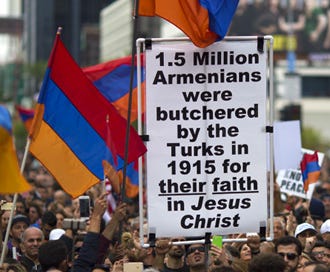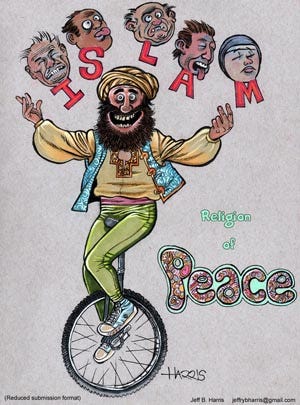Researchers: Turkey’s ‘30-year Genocide’
Turkey’s Greek, Armenian, and Assyrian Christians, who predominated in the region before its colonization by Turkic Muslims, were subjected to a “staggered campaign of genocide” from 1894 to 1924, which reduced them from 20 per cent of the population to less than 2 per cent, according to Israeli researchers.
Dr Benny Morris and Dr Dror Ze’evi, of the Ben-Gurion University of the Negev in Beersheba, Israel, say that the British, French, Turkish, and U.S. archives, along with “some Greek materials” and German and Austro-Hungarian foreign ministry papers, confirm “Turkey’s Armenian, Greek and Assyrian (or Syriac) communities disappeared as a result of a staggered campaign of genocide beginning in 1894, perpetrated against them by their Muslim neighbors.”
Summarizing findings published in full in their book The Thirty-Year Genocide, Turkey’s Destruction of Its Christian Minorities, 1894-1924 in a Wall Street Journal essay, Morris and Ze’evi identified a “strikingly consistent pattern of ethno-religious atrocity over three decades, perpetrated by the Turkish government, army, police and populace” against Asia Minor’s Christian minorities, extending well beyond the infamous Armenian genocide — still denied by the Turkish government — of 1915-16.
“The bloodshed was importantly fueled throughout by religious animus,” the Israeli scholars asserted.
“Muslim Turks — aided by fellow Muslims, including Kurds, Circassians, Chechens and Arabs — murdered about two million Christians in bouts of slaughter immediately before, during and after World War I… organized by three successive governments,” they explained.
“These governments also expelled between 1.5 and 2 million Christians, mostly to Greece.”
While the Ecumenical Patriarch of Constantinople — the former Byzantine capital renamed as Istanbul by its conquerors — is still based in the city to this day, the Turkish government recently prevented the training of new Orthodox Christian priests by shuttering the island seminary of Halki.







